rabbitmq管理界面
可见我的上篇文章介绍的rabbitMQ基础与docker安装rabbitMQ management
网址输入:http://127.0.0.1:15672/
登录名&密码:guest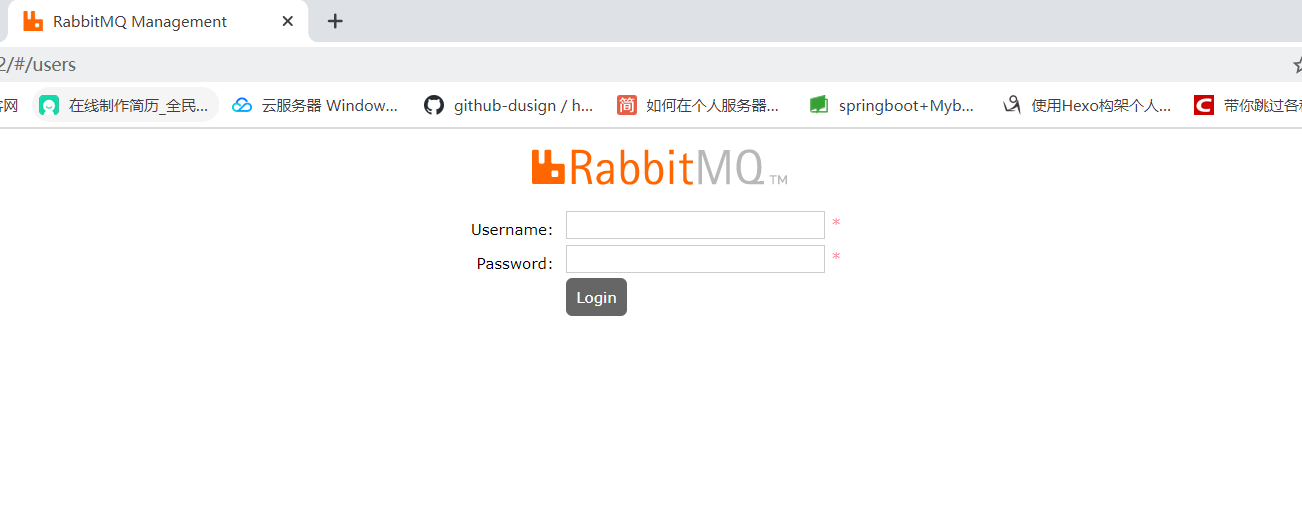
1.直接模式Direct
直接模式介绍
rabbitMQ直接模式:
最基础最简单的模式,发送方把消息发送给订阅方,如果有多个订阅者,默认采取轮询的方式进行消息发送。
当我们需要将消息发给唯一一个节点时使用这种模式,这是简单的一种形式。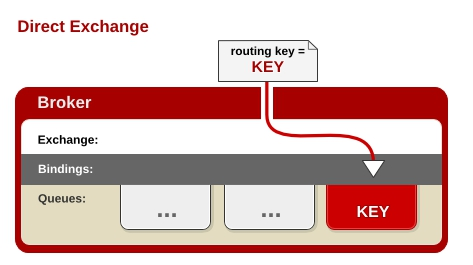
任何发送到Direct Exchange的消息都会被转发到RouteKey中指定的Queue。 1.一般情况可以使用rabbitMQ自带的Exchange:””(该Exchange的名字为空字符串,下 文称其为default Exchange)。 2.这种模式下不需要将Exchange进行任何绑定(binding)操作 3.消息传递时需要一个“RouteKey”,可以简单的理解为要发送到的队列名字。 4.如果vhost中不存在RouteKey中指定的队列名,则该消息会被抛弃。
直接模式demo代码
添加队列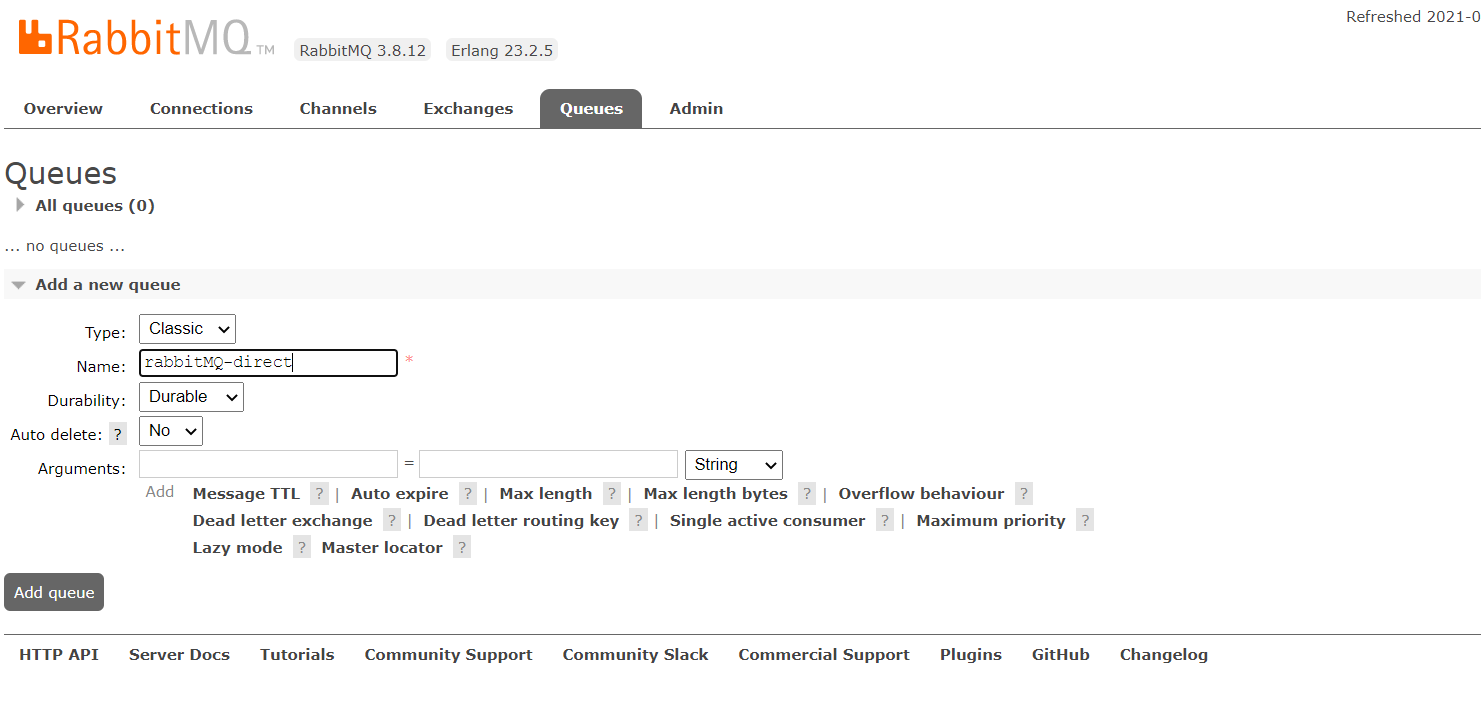
pom.xml:1
2
3
4
5
6
7
8
9
10
11
12
13
14
15
16
17
18
19
20
21
22
23
24
25
26<dependencies>
<dependency>
<groupId>org.springframework.boot</groupId>
<artifactId>spring-boot-starter</artifactId>
</dependency>
<dependency>
<groupId>org.springframework.boot</groupId>
<artifactId>spring-boot-starter-amqp</artifactId>
</dependency>
<dependency>
<groupId>org.springframework.boot</groupId>
<artifactId>spring-boot-starter-test</artifactId>
<scope>test</scope>
</dependency>
<dependency>
<groupId>org.springframework.boot</groupId>
<artifactId>spring-boot-autoconfigure</artifactId>
</dependency>
<dependency>
<groupId>junit</groupId>
<artifactId>junit</artifactId>
<version>4.12</version>
<scope>test</scope>
</dependency>
</dependencies>
DirectCustomer.Class1
2
3
4
5
6
7
8
9
(queues = "rabbitMQ-direct")
public class DirectCustomer {
public void getMsg(String msg){
System.out.println("直接模式消费消息"+ msg);
}
}
application.yml:1
2
3spring:
rabbitmq:
host: 127.0.0.1
appliction.properties:1
spring.rabbitmq.host=127.0.0.1
Test:1
2
3
4
5
6
7
8
9
10
11
12
13
14
15
16
17
18
19
20
21
22
23
24
25package com.example.rabbitmq;
import org.junit.jupiter.api.Test;
import org.junit.runner.RunWith;
import org.springframework.amqp.rabbit.core.RabbitTemplate;
import org.springframework.beans.factory.annotation.Autowired;
import org.springframework.boot.test.context.SpringBootTest;
import org.springframework.test.context.junit4.SpringRunner;
(SpringRunner.class)
@SpringBootTest(classes = RabbitmqApplication.class)
class RabbitmqApplicationTests {
void contextLoads() {
}
private RabbitTemplate rabbitTemplate;
public void testSend(){
rabbitTemplate.convertAndSend("rabbitMQ-direct","我要红包");
}
}
运行项目观察控制台
2.headers模式
headers:与 direct 类似,只是性能很差,此类型几乎用不到。
3.fanout分发模式
fanout分发模式介绍
分发模式,把消息分发给所有订阅者。
当我们需要将消息一次发给多个队列时,需要使用这种模式,如下图
任何发送到Direct Exchange的消息都会被转发到RouteKey中指定的Queue。 1.一般情况可以使用rabbitMQ自带的Exchange:””(该Exchange的名字为空字符串,下 文称其为default Exchange)。 2.这种模式下不需要将Exchange进行任何绑定(binding)操作 3.消息传递时需要一个“RouteKey”,可以简单的理解为要发送到的队列名字。 4.如果vhost中不存在RouteKey中指定的队列名,则该消息会被抛弃。
分发模式demo代码
管理界面操作: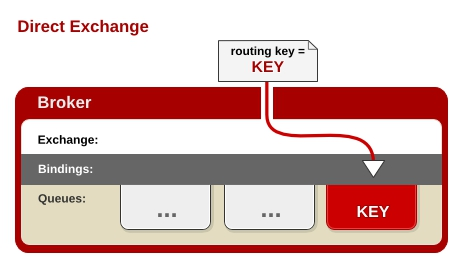
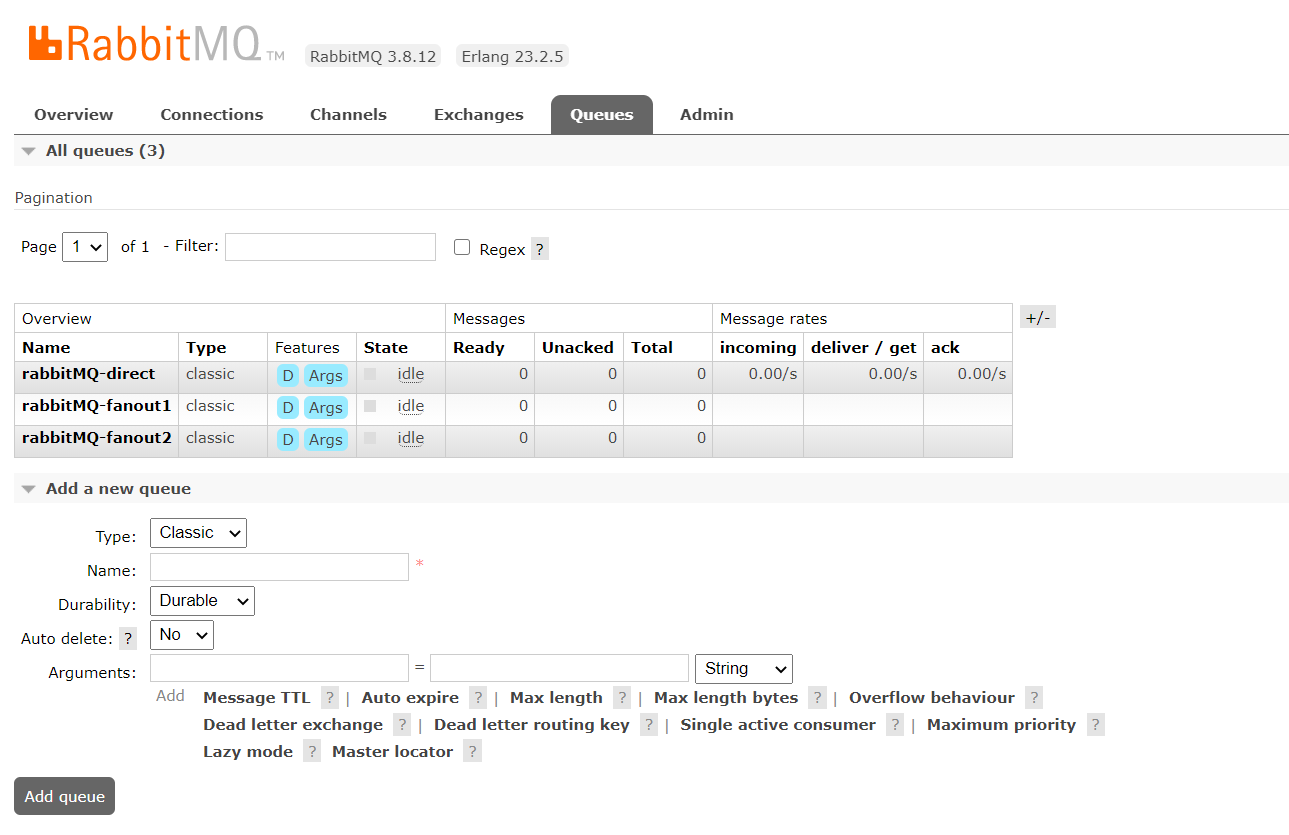
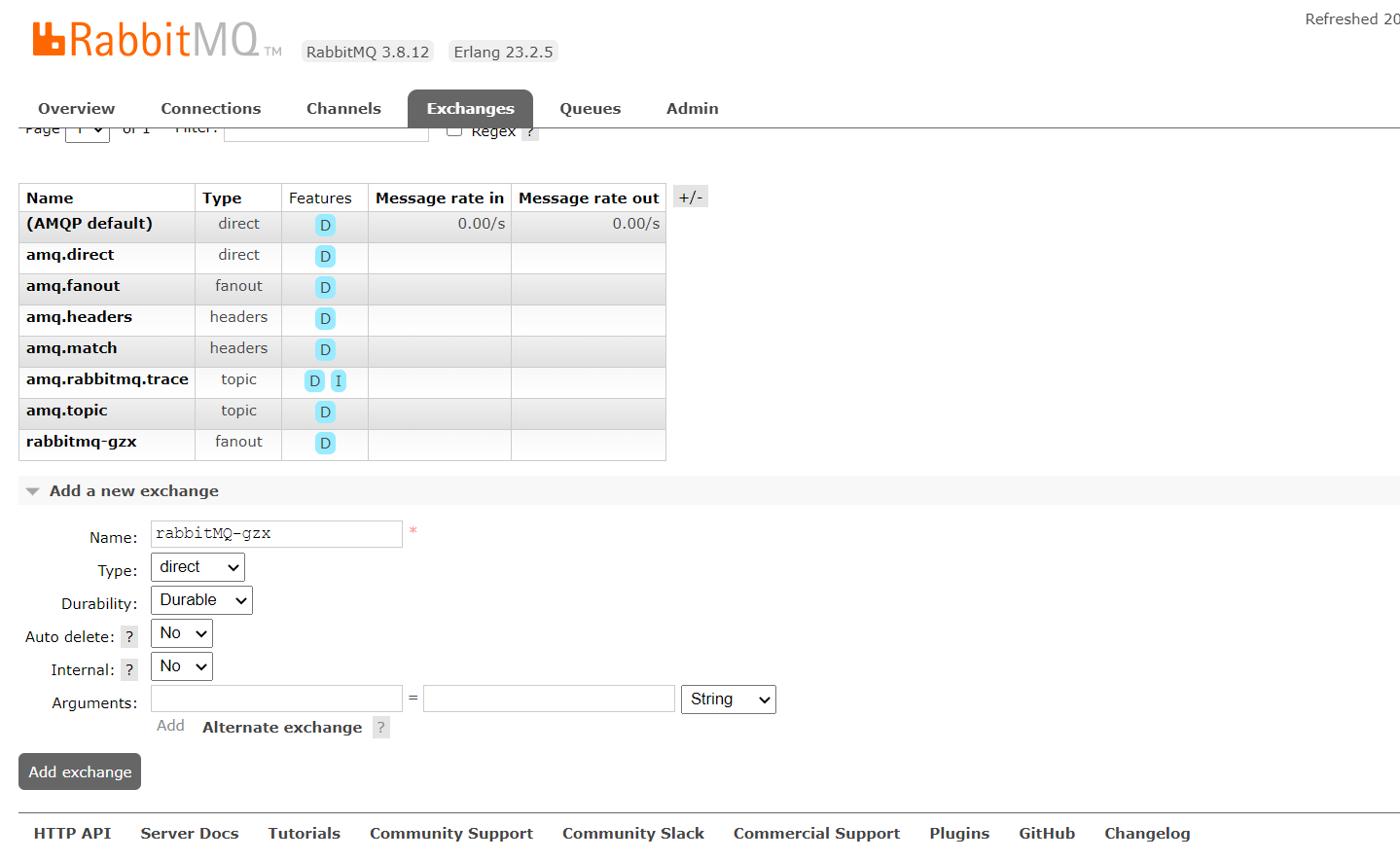
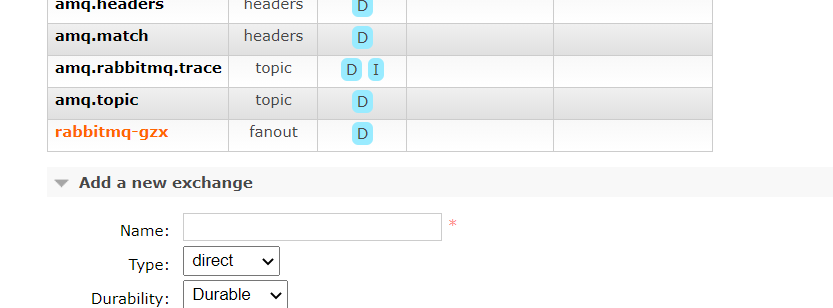
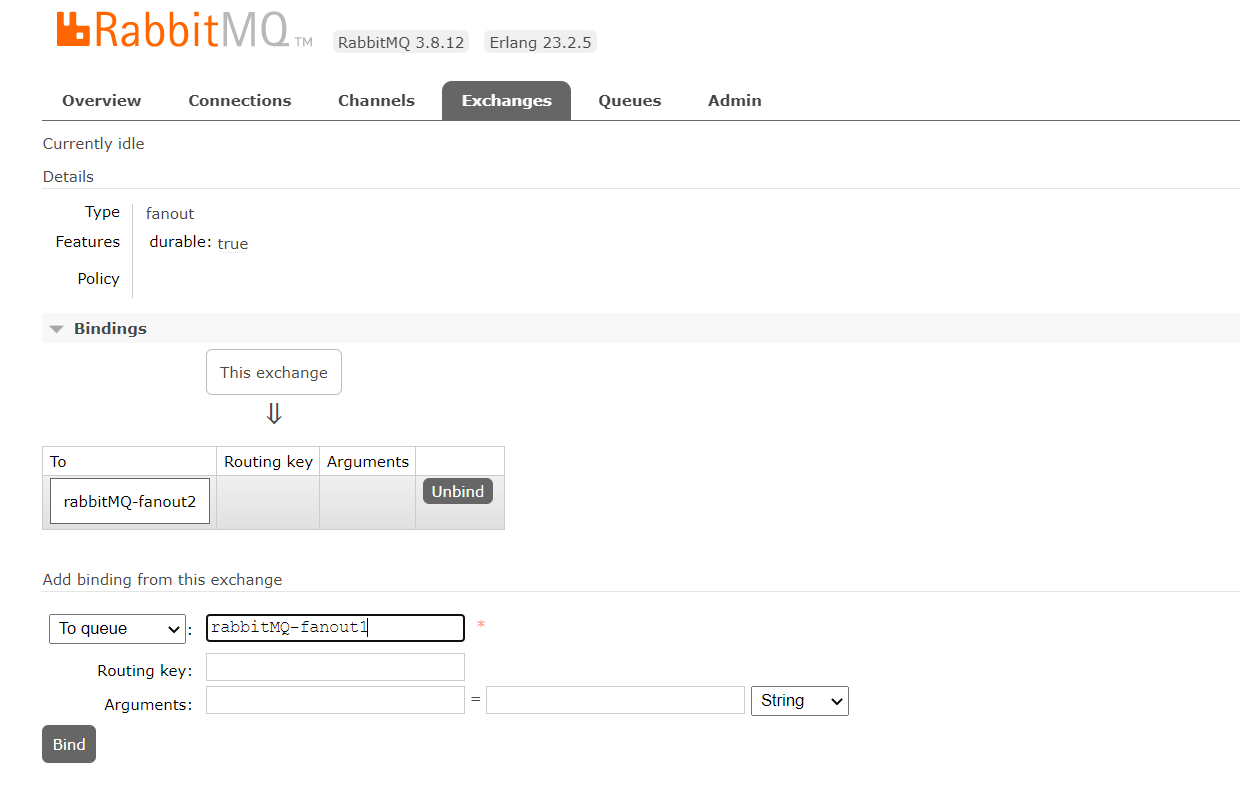
Test:1
2
3
4
public void testSend2(){
rabbitTemplate.convertAndSend("rabbitmq-gzx","","分裂模式");
}
消费者代码:1
2
3
4
5
6
7
8
9
10
11
12
13
14
15package com.example.rabbitmq;
import org.springframework.amqp.rabbit.annotation.RabbitHandler;
import org.springframework.amqp.rabbit.annotation.RabbitListener;
import org.springframework.stereotype.Component;
(queues = "rabbitMQ-fanout1")
public class FanoutCustomer1 {
public void getMsg(String msg){
System.out.println("分发模式1消费消息"+ msg);
}
}
1 | package com.example.rabbitmq; |
启动测试类发送消息,观察控制台结果
4.topic主题模式
主题模式介绍
任何发送到Topic Exchange的消息都会被转发到所有关心RouteKey中指定话题的Queue上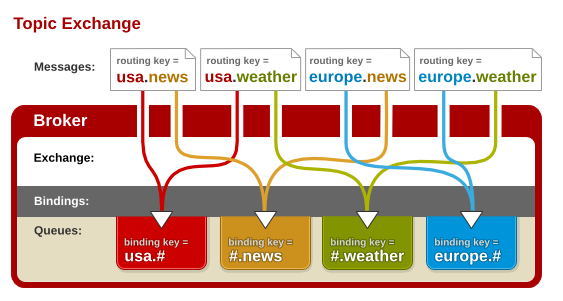
如上图所示 此类交换器使得来自不同的源头的消息可以到达一个对列,其实说的更明白一点就是模 糊匹配的意思,例如:上图中红色对列的routekey为usa.#,#代表匹配任意字符,但是 要想消息能到达此对列,usa.必须匹配后面的#好可以随意。图中usa.news usa.weather,都能找到红色队列,符号 # 匹配一个或多个词,符号 匹配不多不少一个 词。因此 usa.# 能够匹配到 usa.news.XXX ,但是 usa. 只会匹配到 usa.XXX 。 注: 交换器说到底是一个名称与队列绑定的列表。当消息发布到交换器时,实际上是由你所 连接的信道,将消息路由键同交换器上绑定的列表进行比较,后路由消息。
任何发送到Topic Exchange的消息都会被转发到所有关心RouteKey中指定话题的 Queue上
1.这种模式较为复杂,简单来说,就是每个队列都有其关心的主题,所有的消息都带有一 个“标题”(RouteKey),Exchange会将消息转发到所有关注主题能与RouteKey模糊匹配的 队列。
2.这种模式需要RouteKey,也许要提前绑定Exchange与Queue。
3.在进行绑定时,要提供一个该队列关心的主题,如“#.log.#”表示该队列关心所有涉及 log的消息(一个RouteKey为”MQ.log.error”的消息会被转发到该队列)。
4.“#”表示0个或若干个关键字,“”表示一个关键字。如“log.”能与“log.warn”匹配,无法 与“log.warn.timeout”匹配;但是“log.#”能与上述两者匹配。
5.同样,如果Exchange没有发现能够与RouteKey匹配的Queue,则会抛弃此消息
主题模式demo代码
管理界面操作: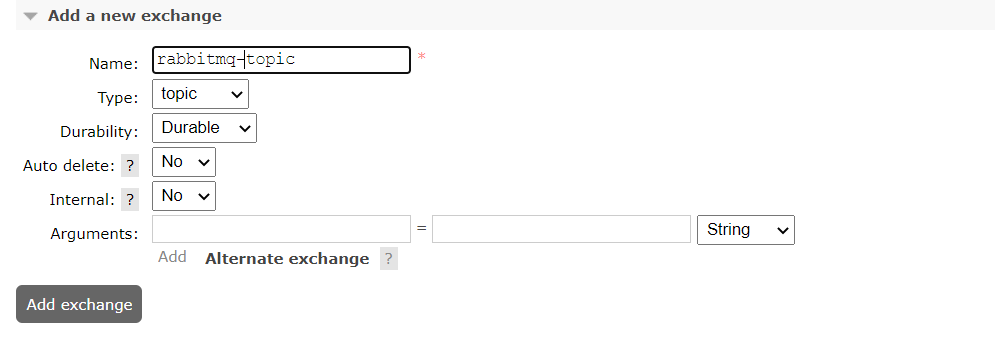
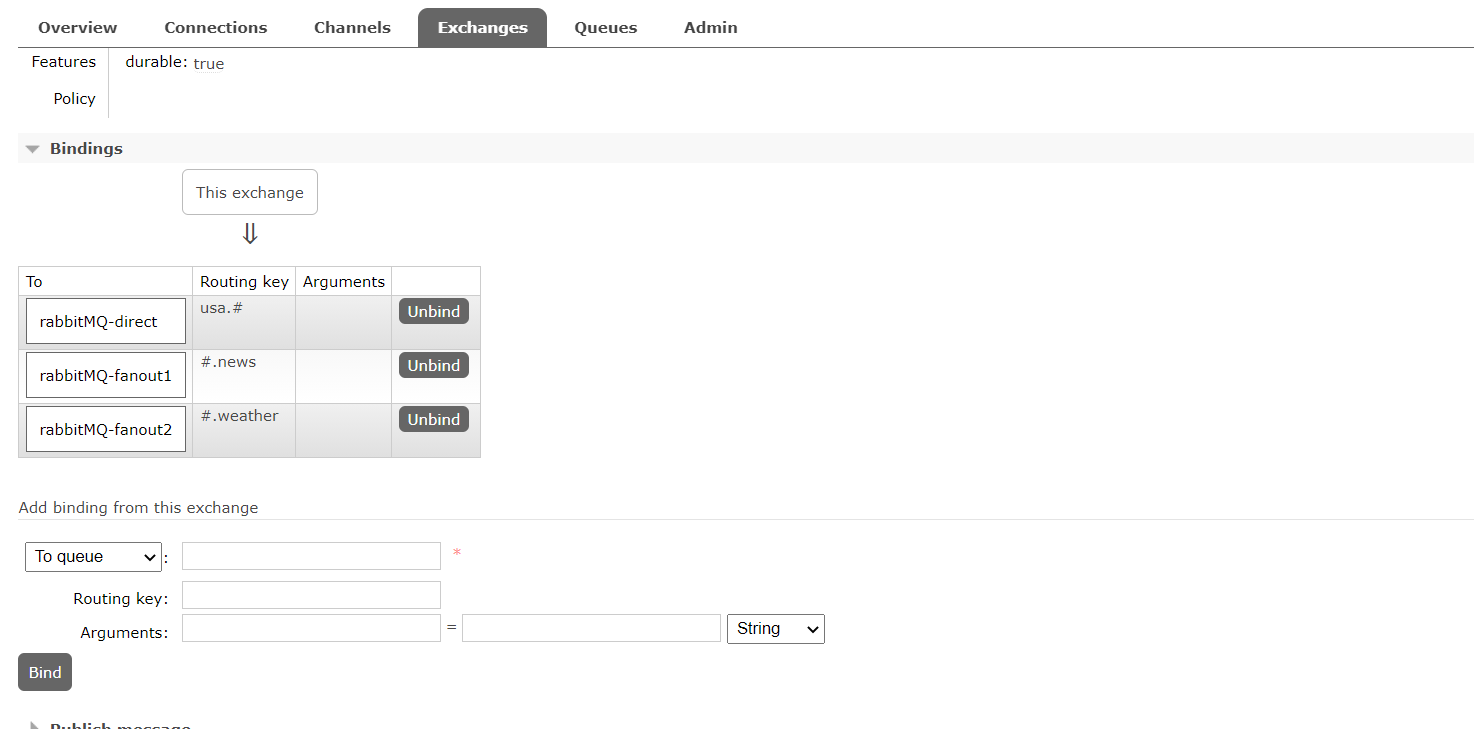
Test:1
2
3
4
5
6
7
8
9
10
11
12
13
14
public void testTopicSend1(){
rabbitTemplate.convertAndSend("rabbitmq-topic","china.news","主题模式消息1");
}
public void testTopicSend2(){
rabbitTemplate.convertAndSend("rabbitmq-topic","chengdu.weather","主题模式消息2");
}
public void testTopicSend3(){
rabbitTemplate.convertAndSend("rabbitmq-topic","usa.news","主题模式消息3");
}
查看运行结果: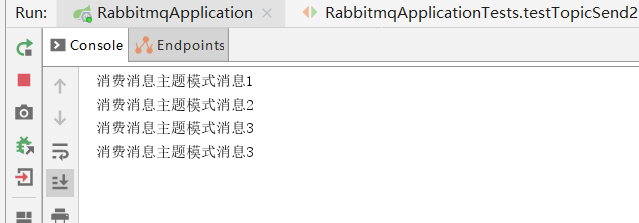

...
...
This is copyright.